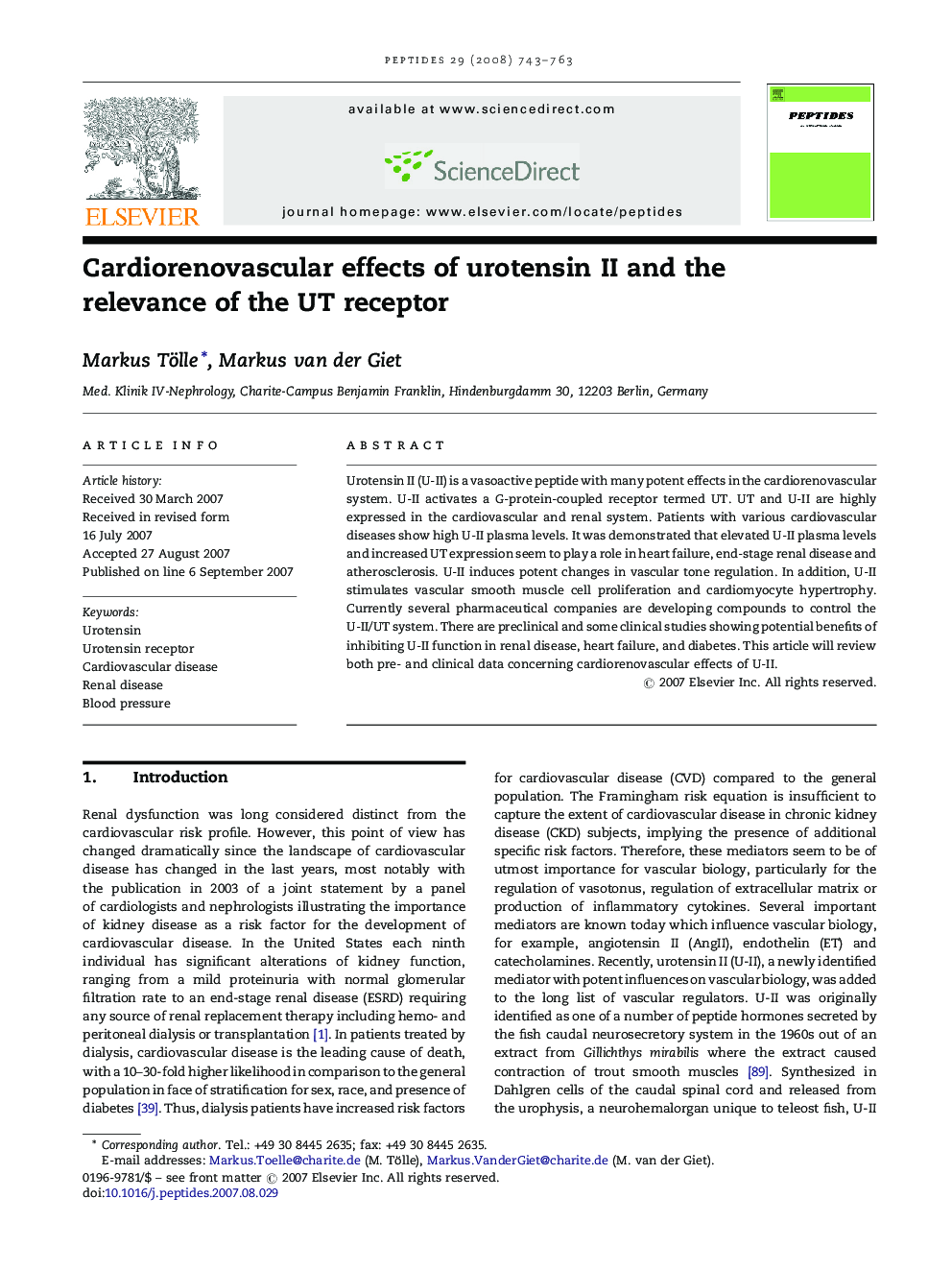| Article ID | Journal | Published Year | Pages | File Type |
|---|---|---|---|---|
| 2007156 | Peptides | 2008 | 21 Pages |
Urotensin II (U-II) is a vasoactive peptide with many potent effects in the cardiorenovascular system. U-II activates a G-protein-coupled receptor termed UT. UT and U-II are highly expressed in the cardiovascular and renal system. Patients with various cardiovascular diseases show high U-II plasma levels. It was demonstrated that elevated U-II plasma levels and increased UT expression seem to play a role in heart failure, end-stage renal disease and atherosclerosis. U-II induces potent changes in vascular tone regulation. In addition, U-II stimulates vascular smooth muscle cell proliferation and cardiomyocyte hypertrophy. Currently several pharmaceutical companies are developing compounds to control the U-II/UT system. There are preclinical and some clinical studies showing potential benefits of inhibiting U-II function in renal disease, heart failure, and diabetes. This article will review both pre- and clinical data concerning cardiorenovascular effects of U-II.
